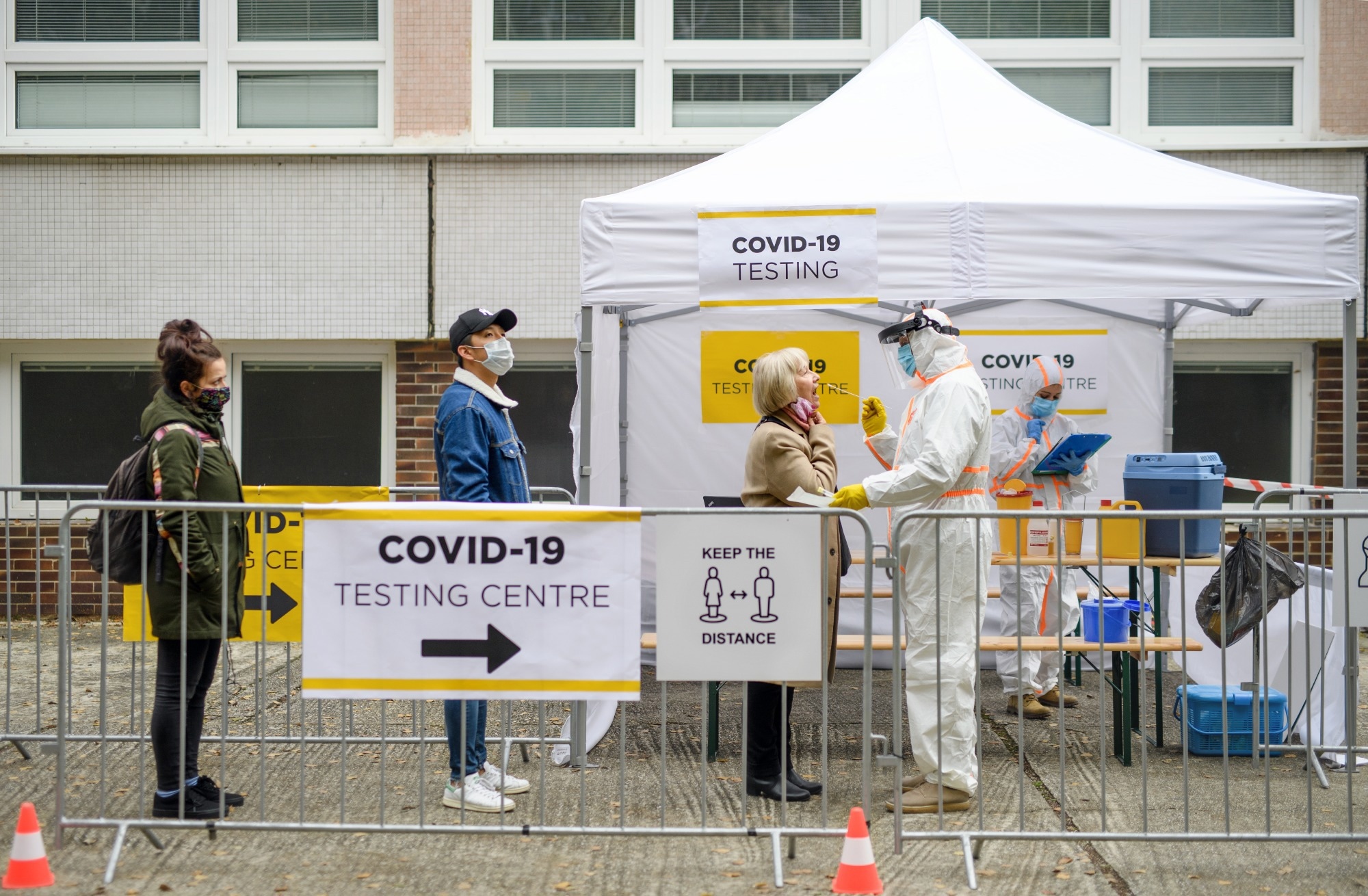During the initial months of the COVID-19 pandemic, the severe acute respiratory syndrome (SARS-CoV-2) outbreak quickly disrupted the provision and utilization of health facilities across the globe. The inadequacy of effective treatments prompted the implementation of non-pharmaceutical interventions to reduce SARS-CoV-2 transmission. The repurposing of human resources and health facilities to mitigate COVID-19 had devastating impacts on the management of other diseases, especially TB.
 Study: Impact of COVID-19 on TB diagnostic services at primary healthcare clinics in eThekwini district, South Africa. Image Credit: Ground Picture / Shutterstock.com
Study: Impact of COVID-19 on TB diagnostic services at primary healthcare clinics in eThekwini district, South Africa. Image Credit: Ground Picture / Shutterstock.com
About the study
In the present study, researchers investigate the magnitude of COVID-19-related disruption of TB diagnostic services at PHCs in South Africa.
The District Health Information System (DHIS) monthly aggregated data were used to perform an interrupted time series (ITS) analysis to assess changes in the investigation and verification of TB throughout COVID-19. These data were classified into different time periods, including the pre-pandemic period between January 2018 and February 2020, followed by April 2020, which was the initial COVID-19-related lockdown period, as well as sequential COVID-19 waves.
Clinics with missing data and outlier values were excluded from the analysis. Ordinary least squares (OLS) regression modeling was performed in addition to segmented-type linear regression modeling, the latter of which was used to evaluate the impact of the pandemic on TB investigations and verifications during the lockdown and subsequent COVID-19 waves.
The first exposure period reflected the level five lockdown in April 2020, followed by the second exposure period during the first COVID-19 wave peak in July 2020. The third exposure period reflected the second COVID-19 wave peak in January 2021, whereas the fourth exposure period denoted the third COVID-19 wave peak in July 2021. The fifth exposure period was the peak of the fourth COVID-19 wave in December 2021.
Study findings
A total of 94 and 76 PHCs were included in the study to analyze tuberculosis investigations and confirmed cases, respectively. The mean monthly counts of TB investigations and confirmed cases at the PHCs were 9,965 and 754, respectively. The SARS-CoV-2 outbreak significantly affected both tuberculosis indicators; however, the effects were heterogeneous throughout the pandemic.
The lockdown period resulted in a 45% reduction in diagnostic investigations and a 40% reduction in confirmed cases of TB. Before the pandemic, TB investigations at PHCs were increasing marginally by 23 tests each month from the baseline count of 8,860 tests. However, during the initial level five lockdown period, there was a reduction of 4,165 investigations.
A significant recovery was observed in both indicators after the initial COVID-19 wave. TB investigations sustained smaller reductions throughout the COVID-19 pandemic; however, they rebounded and exceeded pre-pandemic levels towards the end of the study period. TB diagnostic services at PHCs were considerably affected by the SARS-CoV-2 outbreak, with TB case confirmations most adversely affected throughout COVID-19.
TB investigations during the first COVID-19 wave in July of 2020 increased by 16% compared to during the level five lockdown. However, after the initial COVID-19 wave, TB investigations increased by 712 monthly.
The second COVID-19 wave was associated with a 23% decrease in January 2021, with these reductions persisting month-by-month. During the third COVID-19 wave, dominated by the SARS-CoV-2 Delta variant, TB investigations were associated with non-significant reductions.
By December 2021, the fourth COVID-19 wave showed a 33% reduction in TB investigations. Although monthly trends slightly reduced following the fourth peak, graphical representations indicated more investigations for TB were conducted during this period as compared to before the start of the pandemic.
Month-wise, TB case confirmations were stable pre-pandemic and slightly deviated from the count of 803 at study initiation. During the lockdown in April 2020, TB confirmations were significantly reduced by 334, a 40% reduction that continued each month by seven cases after level five lockdown.
During the first wave of COVID-19 cases, TB confirmations increased marginally by 7%; however, after the lockdown, TB confirmations increased by 47. During the second COVID-19 wave, TB confirmations reduced by 12% and remained consistent at these lower levels in the following months.
At the peak of the third COVID-19 wave, TB confirmations decreased by 29% but increased by an average of 46 cases monthly following the peak. By the fourth COVID-19 wave, TB confirmations reduced by 26%.
Conclusions
The study findings highlight the impact of COVID-19 on TB diagnostics in PHCs in South Africa. Further research is needed to determine the reasons for the persistent reductions in TB detection and inform the development of sustainable diagnostic systems that can withstand future pandemics.
Journal reference:
- Dlangalala, T., Musekiwa, A., & Mashamba-Thompson T. (2023). Impact of COVID-19 on TB diagnostic services at primary healthcare clinics in eThekwini district, South Africa. Scientific Reports 13. doi:10.1038/s41598-023-43589-7